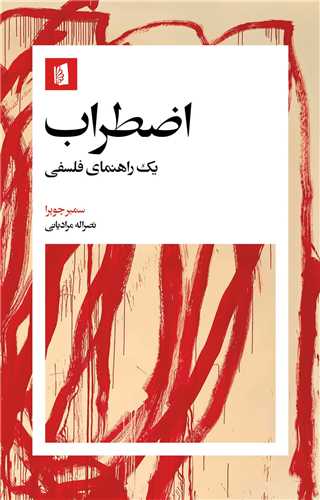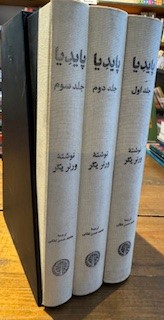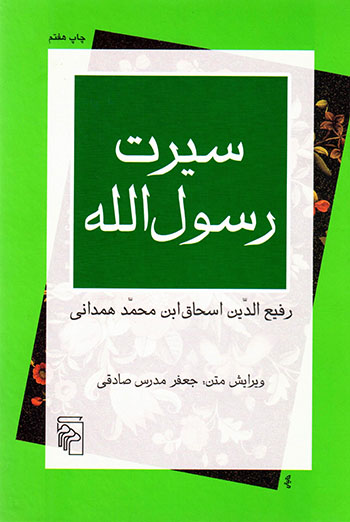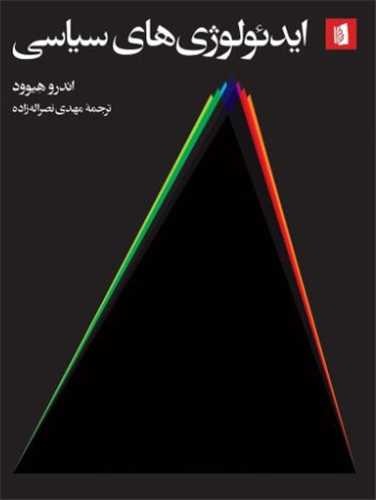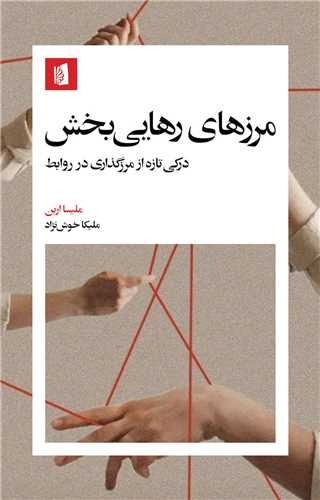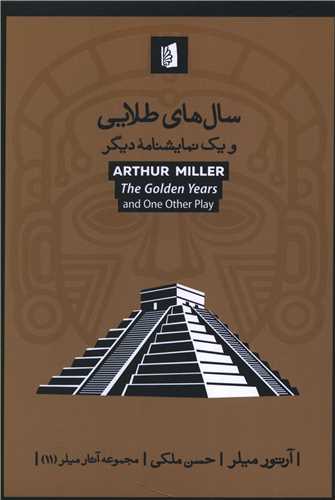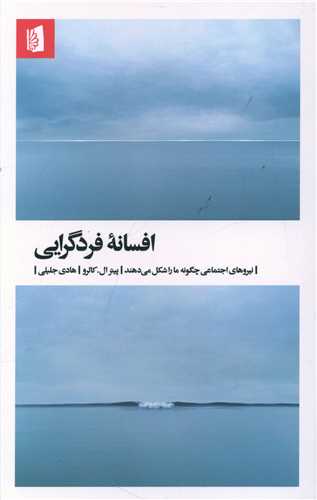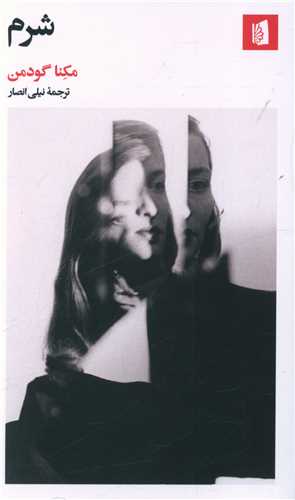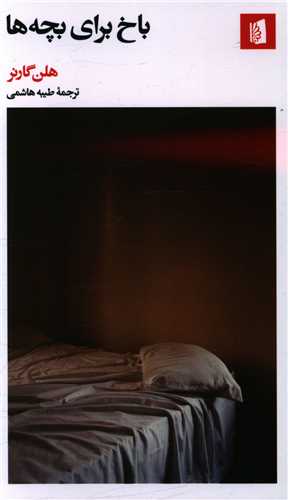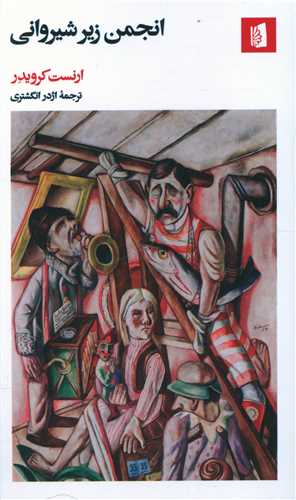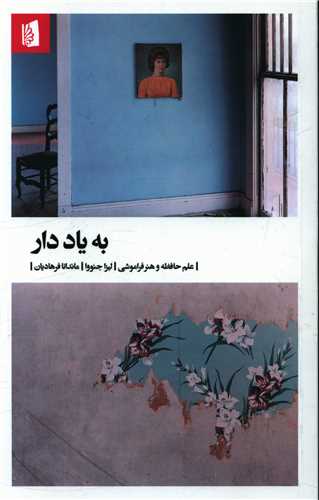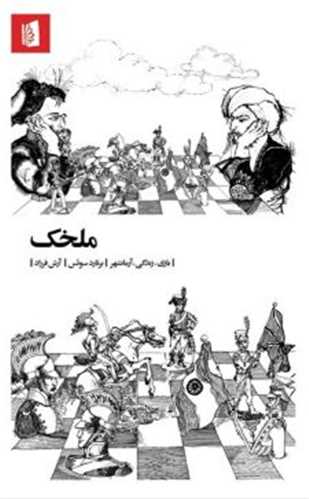Iz̤ṭirāb: Yik Rāhnamā-yi Falsafī: Persiska (Farsi) 1403
اضطراب: یک راهنمای فلسفی
14,22 €
Dela
Wishlist
Originaltitel:
Anxiety: A Philosophical Guide
ISBN:
9786223131752
Översättare:
Naṣr'alāh Murādīyānī
Förlag:
Bidgul
Åldersgrupp:
Vuxen
Sidor:
232
Vikt:
170 g
Produktmått:
11 x 20 x 2
,
1 cm
Bokomslag:
Pocketbok
How philosophy can teach us to be less anxious about being anxious by understanding that it’s an essential part of being human
Today, anxiety is usually thought of as a pathology, the most diagnosed and medicated of all psychological disorders. But anxiety isn’t always or only a medical condition. Indeed, many philosophers argue that anxiety is a normal, even essential, part of being human and that coming to terms with this fact is potentially transformative, allowing us to live more meaningful lives by giving us a richer understanding of ourselves. In Anxiety, Samir Chopra explores valuable insights about anxiety offered by ancient and modern philosophies—Buddhism, existentialism, psychoanalysis, and critical theory. Blending memoir and philosophy, he also tells how severe anxiety has affected his own life—and how philosophy has helped him cope with it.
Chopra shows that many philosophers—including the Buddha, Kierkegaard, Nietzsche, Freud, and Heidegger—viewed anxiety as an inevitable human response to to be is to be anxious. Drawing on Karl Marx and Herbert Marcuse, Chopra examines how poverty and other material conditions can make anxiety worse, but he emphasizes that not even the rich can escape it. Nor can the medicated. Inseparable from the human condition, anxiety is indispensable for grasping it. Philosophy may not be able to cure anxiety, but by leading us to greater self-knowledge and self-acceptance, it may make us less anxious about being anxious.
Personal, poignant, and hopeful, Anxiety is a book for anyone curious about rethinking anxiety and learning why it might be a source not only of suffering but of insight.
more
امروزه عموماً اضطراب نوعی آفت یا بیماری تلقی میشود؛ در میان اختلالاتی که روانشناسان و روانپزشکان تشخیص میدهند و قصد درمانش را دارند، اضطراب بیشترین سهم را دارد. ولی اضطراب فقط یک عارضه یا ناخوشی نیست؛ بهعلاوه، همیشه ضرورت ندارد که درمان و معالجهاش کنیم. درواقع فیلسوفان بسیاری ادعا کردهاند که اضطراب بخشی عادی و حتی لاینفک از انسان بودن است؛ آنها مدعیاند که پذیرفتن این واقعیت میتواند موجب تحول ما شود، و به این ترتیب، با عمیقترکردن فهم ما از خودمان اجازه میدهد زندگی پرمعناتری را در پیش بگیریم. در کتاب اضطراب، سمیر چوپرا دست به کندوکاو در نگرشی ارزشمند دربارۀ اضطراب میزند که فلسفههای کهن و مدرن پیش مینهند – آیین بودا، اگزیستانسیالیسم، روانکاوی، و نظریۀ انتقادی. او درعینحال با تلفیق خاطرهنویسی و فلسفه، از این نیز میگوید که اضطراب چه نقش مهمی در زندگی خودش داشته است و فلسفه چگونه یاریاش کرده تا اضطرابش را بفهمد و بپذیرد.
| چوپرا نشان میدهد که فیلسوفان بسیاری – ازجمله بودا، کیرکگور، نیچه، فروید، و هایدگر – اضطراب را نوعی پاسخِ اجتنابناپذیرِ بشری به وجود دانستهاند: بودن یعنی مضطرببودن. چوپرا با توسلجستن به آرای مارکس و مارکوزه به بررسی این واقعیت میپردازد که فقر و اوضاع مادیِ ما میتواند به اضطرابمان دامن بزند، ولی تأکید میکند که حتی اغنیا و ثروتمندان نیز گریزی از آن ندارند. حتی آنها که تحت درمان قرار گرفتهاند هم به همین ترتیب. اضطراب از وضع بشر جداییناپذیر است و برای درک وضع بشر گریزناپذیر. چهبسا فلسفه نتواند اضطراب را درمان کند، ولی شاید بتواند با هدایت ما بهسوی خودشناسی و خودپذیریای عمیقتر، باعث شود برای اضطرابمان نگران و مضطرب نباشیم.
more

